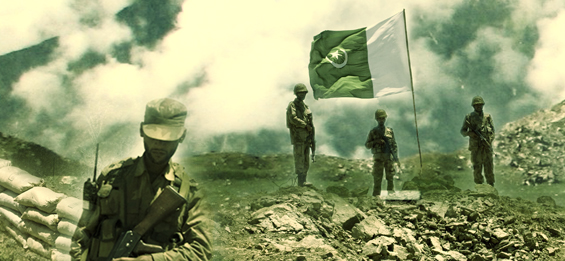From: Biniam Haile \(SWE\) (eritrea.lave@comhem.se)
Date: Sun Aug 09 2009 - 07:34:14 EDT
Al Jazeera English - AJE
US 'biggest' threat, say Pakistanis
By Owen Fay
Sunday, August 09, 2009
A survey commissioned by Al Jazeera in Pakistan has revealed a
widespread disenchantment with the United States for interfering with
what most people consider internal Pakistani affairs.
The polling was conducted by Gallup Pakistan - a separate organisation
affiliated with the US-based Gallup Inc - and more than 2,600 people
took part.
Interviews were conducted across the political spectrum, and represented
men and women of every economic and ethnic background.
The resentment was made clear when residents were asked if they support
or oppose Pakistan's own military offensive against Taliban targets.
Keeping with recent trends a growing number of people, now 41 per cent,
support the campaign.
About 24 per cent of people remain opposed, but an additional 22 per
cent of Pakistanis remain neutral on the question.
That number changes quite significantly when people were asked if they
would support government-sanctioned dialogue with Taliban fighters if it
were a viable option.
The same 41 per cent said they would still support the military
offensive. But the number of those supporting dialogue leaps up to 43
per cent.
So clearly, Pakistanis are, right now, fairly evenly split on how to
deal with the Taliban threat.
However, when asked if they support or oppose the US military's drone
attacks against what Washington claims are Taliban and al-Qaeda targets,
only nine per cent of respondents reacted favourably.
A massive 67 per cent say they oppose US military operations on
Pakistani soil.
That consensus of opinion is notable given the fact that on a raft of
internal issues there is a clear level of disagreement, which can be
expected in a country of this size.
Pakistani leadership
When asked for their opinions on Asif Ali Zardari, the Pakistani
president, 42 per cent of respondents believe he is doing a bad job.
Around 11 per cent approve of his leadership, and another 34 per cent
have no strong opinion either way.
That pattern was reflected in a question about the Pakistan People's
Party (PPP).
Respondents were asked if they thought the PPP is good or bad for the
country.
About 38 per cent said the PPP was bad for the country, 20 per cent
believe it was good for the country and another 30 per cent said they
have no strong opinion.
Respondents were even more fractured when asked for their views on how
the country should be led.
By far, the largest percentage would opt for Nawaz Sharif, a former
prime minister, as leader. At least 38 per cent back him to run
Pakistan.
Zardari received only nine per cent support, while Reza Gilani,
Pakistan's prime minister, has the backing of 13 per cent.
But from there, opinions vary greatly. Eight per cent of the population
would support a military government, 11 per cent back a political
coalition of the PPP and Sharif's PML-N party.
Another six per cent throw their support behind religious parties and
the remaining 15 per cent would either back smaller groups or simply do
not have an opinion.
US policies
But that level of diversity disappears when broader questions of
security and military intervention are posed.
In the same way that most Pakistanis right now reject what they see as
US military interference, they strongly oppose US policies as a whole.
The respondents were asked what they consider to be the biggest threat
to the nation of Pakistan: 11 per cent of the population sees the
Taliban as the largest threat, while 18 per cent believe it comes from
India.
But by an overwhelming margin, 59 per cent of respondents said the
greatest threat to Pakistan right now is, in fact, the US.
That is a number worth bearing in mind the next time the US claims its
military campaign is succeeding.
http://english.aljazeera.net/news/asia/2009/08/20098810611199907.html
<http://english.aljazeera.net/mritems/Images//2009/8/8/20098812262925873
8_20.jpg>

----[This List to be used for Eritrea Related News Only]----